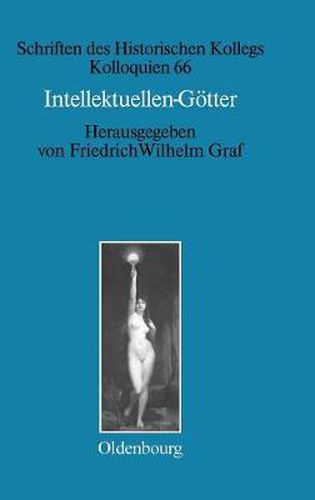Readings Newsletter
Become a Readings Member to make your shopping experience even easier.
Sign in or sign up for free!
You’re not far away from qualifying for FREE standard shipping within Australia
You’ve qualified for FREE standard shipping within Australia
The cart is loading…






This title is printed to order. This book may have been self-published. If so, we cannot guarantee the quality of the content. In the main most books will have gone through the editing process however some may not. We therefore suggest that you be aware of this before ordering this book. If in doubt check either the author or publisher’s details as we are unable to accept any returns unless they are faulty. Please contact us if you have any questions.
Max Weber hat in seiner Religionssoziologie den Begriff der Intellektuellenreligiositat gepragt. In neun Beitragen wird das Verhaltnis prominenter judischer, roemisch-katholischer und protestantischer Intellektueller zur Religion untersucht. Intellektuelle haben religioese Symbolsprachen vielfaltig transformiert, sich als Religionsstifter inszeniert oder auch alte, institutionalisierte Religion entschieden kritisiert. In kritischer Distanz zu etablierten religioesen Institutionen suchen sie auf ihre spezifische Weise Lebenssinn zu generieren. Insoweit sind sie selbst zentrale Akteure der modernen Religionsgeschichte.
$9.00 standard shipping within Australia
FREE standard shipping within Australia for orders over $100.00
Express & International shipping calculated at checkout
This title is printed to order. This book may have been self-published. If so, we cannot guarantee the quality of the content. In the main most books will have gone through the editing process however some may not. We therefore suggest that you be aware of this before ordering this book. If in doubt check either the author or publisher’s details as we are unable to accept any returns unless they are faulty. Please contact us if you have any questions.
Max Weber hat in seiner Religionssoziologie den Begriff der Intellektuellenreligiositat gepragt. In neun Beitragen wird das Verhaltnis prominenter judischer, roemisch-katholischer und protestantischer Intellektueller zur Religion untersucht. Intellektuelle haben religioese Symbolsprachen vielfaltig transformiert, sich als Religionsstifter inszeniert oder auch alte, institutionalisierte Religion entschieden kritisiert. In kritischer Distanz zu etablierten religioesen Institutionen suchen sie auf ihre spezifische Weise Lebenssinn zu generieren. Insoweit sind sie selbst zentrale Akteure der modernen Religionsgeschichte.